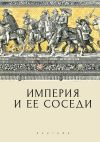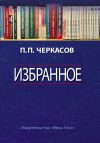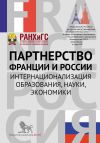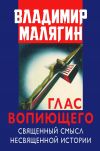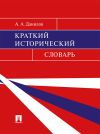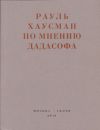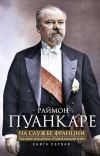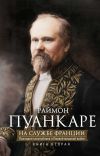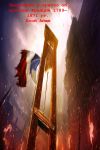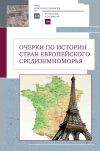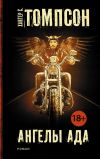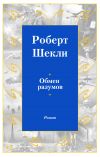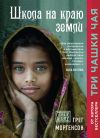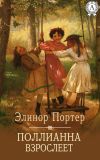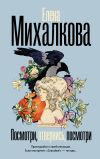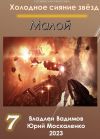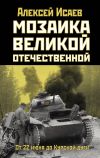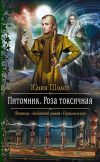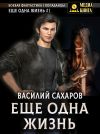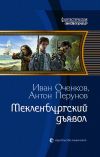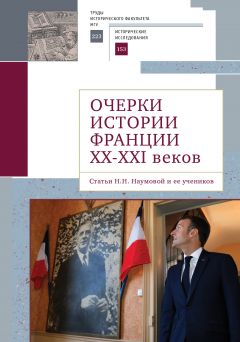
Автор книги: Коллектив авторов
Жанр: Историческая литература, Современная проза
Возрастные ограничения: +16
сообщить о неприемлемом содержимом
Текущая страница: 8 (всего у книги 39 страниц) [доступный отрывок для чтения: 10 страниц]
Stalin’s reply broached the central theme of his advice to Thorez by stressing the PCF’s continuing need for allies against the ‘forces of reaction’ and warning against excessive criticism of the SFIO. De Gaulle, Stalin argued, might well try to isolate the PCF and to act against the Communists; even if personally unwilling, ‘he will be pressed to do so by the Americans and the British, who want to create a reactionary government in France, as they do everywhere they can’. The Communists, he stressed, ‘are not strong enough to take on the struggle against the reactionary forces on their own’, and should therefore seek allies among Radicals, Socialists and ‘other elements’ to form a ‘bloc against the forces of reaction’, allowing the PCF to ‘defend itself now and, when the situation had changed, to go onto the attack’. For that reason, they ‘should not seek to identify who, among the Socialists, said what and when against the Soviet Union’. Even if ‘we know the Socialists well’ as ‘the left wing of the bourgeoisie’, the overriding need now was to avoid the PCF’s isolation. The bloc should also create close but discreet links with trade unions and with youth movements. ‘The youth movement’, added Stalin, ‘should not be called the Communist youth. Some people are frightened of flags, and this should be taken into consideration.’
Perhaps the most remarkable moment in the conversation came when Thorez mentioned that ‘the patriotic militias that had formed the main force of the Resistance under the Occupation’ had, for the moment, kept their arms. In reply, Stalin warned Thorez to: take account of the fact that there now existed in France a government recognised by the Allied powers. In these conditions it was difficult for the Communists to have their own armed forces alongside those of the regular army, as their need for such detachments was now open to question. As long as there was no Provisional Government, and as long as no zones to the rear of the battle-front fell under the authority of such a government, there was some point in the existence of such units. But what was their use now that there was a government with an army? Such arguments could be used by the Communists’ enemies, and would seem convincing to the average Frenchman. The position of the Communist Party was therefore weak and would continue to be so as long as it kept its armed forces; its position was simply hard to defend. That was why the armed units needed to be transformed into a more political organisation; as for the weapons, they should be hidden.’[354]354
Some arms were hidden, though there is no evidence that this was done systematically. Cf. A. Harris and A. de Sédouy, Qui n’est pas de droite? (Paris: Le Seuil, 1978), Pp. 212-3.
[Закрыть]
Stalin added that he had mentioned this point because he felt the PCF had not understood how the situation in France had changed, and accused them of pursuing their old policies, notably in attacking the Socialists and trying to hold on to their weapons, oblivious of the new context in which de Gaulle headed a government recognised by Britain, the Soviet Union, the United States, and other powers. Because the PCF was not strong enough to ‘strike at the head’ of this government, it would need to change strategy, gather its forces, and seek allies so as to be able to claim, in the event of an offensive from reactionary forces, that it was not just the Communists who were under attack, but the whole people. Such allies would also be of use if the situation allowed the Communists to go onto the offensive. To attract them, the PCF needed a broad platform including industrial reconstruction, jobs for the unemployed, the defence of democracy, and punishment for the Vichyites who had acted to suppress it.
Stalin returned again and again to the need for the PCF to be both strong in itself and, crucially, to be surrounded by allies, to thwart its enemies’ attempts to isolate it. He was equally cautious on foreign policy issues, and advised against the French Communists’ adopting the dismemberment of Germany as a slogan, at least unless public opinion and the French intelligentsia clearly favoured it. Outwardly at least, Stalin justified his caution in relation to domestic politics: advocating such a policy without a broad supportive consensus could place the PCF ‘in the same camp as the worst reactionaries’, and in danger of condemnation by association. Hence the need to take careful soundings before moving in this direction. It might be added in passing that the Soviets themselves, while wanting the Oder-Neisse line, had no wish for a divided Germany, and gave rather little support to the GPRF’s positions on this point.
The relationship between the two men was clearly indicated by the close of their conversation. Asked if he had any further questions, Thorez replied in the negative but assured Stalin that he ‘would always need his advice’. Returning to Paris, Thorez immediately called on the French to unite their forces for victory and to ‘struggle for a free, democratic and independent France’. By the end of January 1945, he had become the clear and effective advocate of the disbanding of the militias in accordance with the GPRF decree, and of the subordination of the CDLs to the GPRF.[355]355
Buton, Les Lendemains, p. 188.
[Закрыть]
Thorez had received a brief mention during de Gaulle’s visit to Moscow, when Stalin recommended him to the General as ‘a good Frenchman’, adding ‘In your place, I would not put him in prison… at least, not right away!’[356]356
De Gaulle, War Memoirs, Vol. III, p. 67.
[Закрыть]But Thorez’s return to Paris on 27 November, and the orders Stalin had given him, proved in many ways more significant than the Franco-Soviet alliance. Stalin had ensured that the PCF would be led by his own hand-picked chief; and for the moment at least, France’s Communists would work within the ‘bourgeois’ political system. The importance of this was not lost on de Gaulle, On Thorez’s death in 1964, he wrote to the Communist leader’s son that ‘whatever he may have done before and after, Maurice Thorez answered my call and, as a member of my government, contributed to the maintenance of national unity’.[357]357
Quoted in A. Grosser, Politique extérieure (Paris: Flammarion, 1984), p. 26.
[Закрыть]
Communists in government, 1944–1946
Throughout the existence of the GPRF, France’s Communists did their utmost to implement Stalin’s directives of November 1944. They remained within government in order, as they said, to ‘bring the war to a victorious conclusion’ and to ensure ‘the co-operation of all the patriotic forces towards France’s democratic renaissance’. On one level, they were extremely successful. The PCI established itself as France’s premier political party, heading the poll at two out of the three national elections (of October 1945 and June and November 1946) with over a quarter of the vote – ahead of their Socialist rivals and over 10 points above their own best pre-war result of March 1936. Progress at the ballot-box was paralleled by an explosion in membership. Out of a pre-war total of some 300,000, the PCF had counted barely 5,000 members in the winter of 1939-40. Their numbers had risen to 60,000 by August 1944, to over 200,000 the following month, and to nearly 544,000 by April 1945; they would exceed 785,000 by the year’s end.[358]358
Cf. Buton, Les Lendemains, pp. 269-70.
[Закрыть]This was, to a degree, part of a wider international movement. The prestige of the USSR, as the country which had made the greatest sacrifices to defeat Nazi Germany, was at its peak.[359]359
In September 1944, 61 per cent of respondents to an IFOP poll conducted in Paris considered that the USSR was making the greatest contribution to Germany’s defeat (quoted in Courtois and Lazar, Histoire du Parti communiste, p. 226).
[Закрыть]Communist ideas had won widespread popularity, not least because state control and egalitarianism were readily associated with the wartime mobilisation which had secured victory. In nine countries of Western Europe, including Italy, Belgium, Finland and France, as well as in four Latin American countries, Communists were in government. And in central, eastern, and south– eastern Europe the Communists had won power on the heels of the Red Army. Within France, meanwhile, the influence of the Resistance and of the democratic and antifascist forces linked to it were at their height; the PCF, as one of the principal forces of the Resistance, could not but reap the benefits. Its leading role within the main trade union, the Confédération Générale du Travail (CGT), itself experiencing a membership boom (with close to four million members), also helped the party put down deep roots in French society.
But France’s Communists were less successful in implementing the central thrust of Stalin’s directives – the construction, under their leadership, of a broad-based left-wing alliance. Parallel to the string of electoral victories ran a series of battles over the new constitution and over the formation of governments; in these, the PCF often faced a stark choice between the isolation that Stalin had warned against and substantial concessions to its ‘weaker’ partners of the SFIO and the third major governing party of the Liberation era, the Christian Democrat Mouvement Républicain Populaire (MRP).
The divided Left, 1945
The alliance strategy won an initial success at the municipal elections of April-May 1945. Here the PCF ran broad-based lists labelled ‘republican, democratic, and anti-fascist union’. After the first round of voting it called for ‘a bloc of all the republican, democratic and secular forces’ for the second ballot.[360]360
L’Humanité, 4 May 1945.
[Закрыть]The pre-election Communist-Socialist alliance secured victories in over 5,500 municipalities, over three times more than the prewar total (cf. Chapter 5); Communist mayors headed 1,462 municipalities, including, for the first time, big towns such as Toulon, Nantes, Limoges and Reims.[361]361
P. Martin, Les élections municipales en France depuis 1945 (Paris: La Documentation Française, 2001), pp. 20-1.
[Закрыть]Pravda took note with satisfaction, underlining that the victorious ‘anti-fascist’ lists consisted of candidates proposed jointly by the PCF and the SFIO, as well as Resistance organisations and, in some areas, the Radical Party.[362]362
Pravda, 16 May 1945.
[Закрыть]
At the same time, the PCF leadership heeded Stalin’s counsels of moderation and his instruction to build a left-wing bloc. The party’s watchwords were national economic reconstruction, the punishment of traitors, real guarantees of democratic rights and freedoms, and the drafting of a new constitution – all of which would require a broad union of national forces around the programme of the CNR. Speaking at the PCF’s first postwar congress (the Tenth Congress, held in Paris from 26–30 June 1945), Thorez declared that ‘the renaissance of France is not the business of a single party or of a few statesmen, but a problem to be solved by millions of French men and women, by the whole nation’.[363]363
M. Thorez, Articles et discours choisis (Moscow: Politicheskaya Literatura, 1966), p. 254.
[Закрыть]Three weeks later he offered proof of his party’s commitment to workplace discipline when he told France’s miners that their first ‘duty as a class’ was to ‘produce, produce, and again produce’; the CGT did not hesitate to break strikes where they occurred.[364]364
Thorez in a speech to mineworkers on 21 July 1945, quoted in Buton, Le Lendemains, p. 196.
[Закрыть]
In party terms, the leadership counted primarily on the Socialists to avoid the isolation that Stalin had warned against. At the Tenth Congress, Thorez underlined ‘the urgent need to create a strong French Labour party which would bring together Socialists and Communists and constitute the basis of a union between all republicans and all true Frenchmen’.[365]365
M. Thorez, (Euvres, Vol. xxi (Paris, Éditions Sociales, 1963), pp. 126-7; Pravila, 1 June 1945.
[Закрыть]Shortly afterwards, a PCF delegation made merger proposals to the SFIO leadership. But the Socialists were in no hurry. Many feared that their party would be weakened or (as in some East European countries) simply swallowed up by the Communists in a united structure. Léon Blum, the former prime minister, whom Stalin had called a ‘charlatan’ even in 1936, during the Popular Front era, and who now returned the compliment by referring to the PCF as a ‘foreign nationalist party’, reinforced these concerns after returning from deportation in Germany at the end of hostilities.[366]366
Documents on the Foreign Policy of the USSR, Vol. xx, Moscow, 1973, p. 613; Courtois and Lazar, Histoire du PCF, p. 229.
[Закрыть]His growing influence within the SFIO leadership helped tip the balance at the SFIO’s Congress of August 1945: favourable to ‘unity of action’ with the PCF, the Socialists voted against a merger. Such a union might not have produced comparable results to those obtained in Eastern Europe. But the decision was a setback for the PCF’s strategy as set out by Stalin; and from that summer, relations between the two parties began to deteriorate.
Partial isolation: the referendum of 21 October 1945
The same balance of electoral success with political setbacks was discernible at the referendum and elections of 21 October 1945, the first vote at national level since the war. With 26.2 per cent of the vote (against the MRP’s 24.9 and the SFIO’s 23.8), and the largest parliamentary group, the PCF was France’s leading party. Pravda again noted the result with satisfaction, explaining that ‘the French people know very well the role played by the Communist party in the Resistance organisations, in the struggle against the Hitlerite occupation, and in the restoration of democratic principles’.[367]367
Pravda, 28 October 1945.
[Закрыть]
The double referendum held concurrently with the elections, by contrast, produced a less welcome result for the PCF. The referendum (itself a break with tradition, since no referendum had been held in France since the fall of the Second Empire in 1870) concerned the powers of the new legislature, and specifically its right to draft a new constitution and the limitations, if any, to be placed on its mandate. Only the Radicals opposed any attribution of constituent powers: they preferred a straight return to the Third Republic, under which they had held a pivotal position. The PCF and the CGT took the opposite position, seeking open-ended and constituent powers for the new assembly. De Gaulle, however, proposed, in the name of the GPRF, that those powers be limited. The new assembly would have normal powers of a parliament; it would draft a new constitution; but its mandate would last just seven months and its constitutional draft would be submitted to a new referendum.[368]368
Cf. Chapter 2.
[Закрыть]‘De Gaulle has openly thrown his gauntlet into the balance’, noted Pravda, apparently quoting from the French press.[369]369
Pravda, 19 October 1945.
[Закрыть]Supported by the SFIO, the MRP, and other ‘bourgeois’ groups from the Resistance, this project was opposed, unsuccessfully, by the Communists and the Radicals, as well as the CGT. At the referendum, 95 per cent of the voters backed constituent powers for the new assembly, revealing the Radicals’ extreme weakness; but two-thirds also approved de Gaulle’s proposal to limit its powers, showing – in line with Stalin’s warnings – the relative weakness of the PCF when isolated.
A sense of isolation was aggravated by the behaviour of the SFIO during the campaign. Pravda noted gloomily that ‘The Socialist Party’s campaign was almost entirely directed against the PCF. The Socialist Party rejected… the hand held out to it, and preferred an unnatural alliance with the MRP. The outcome was more than unfavourable for the Socialists.’[370]370
Pravda, 25 October 1945.
[Закрыть]Three days later, the main culprit was identified by name: ‘Léon Blum has repeatedly spoken in favour of working-class unity and co-operation with the Communists, but every act of the election campaign was directed against the PCF. At the same time, the organisations within the Socialist Party that really pursued working-class unity and co-operation with the Communists were punished by the Socialist leadership.’[371]371
Pravda, 28 October 1945.
[Закрыть]
The strains of tripartisme, 1945–1946
A further occasion for frustration with the SFIO came with the formation of a new government. The 1945 elections had given the PCF and the SFIO together an absolute majority in the Constituent Assembly. Following parliamentary tradition, under which the majority parties form a government headed by a leader of the strongest party, the PCF’s Bureau politique proposed a PCF-SFIO coalition government with Thorez as Prime Minister, or even – as a fall-back position – with a Socialist at its head. The Socialist leadership refused on both counts, insisting that they would only take part in a tripartite (PCF – SFIO – MRP) government headed by de Gaulle.
Mindful of the Kremlin’s advice not to fight the Socialists openly, the PCF withdrew its proposal; the Constituent Assembly duly (and unanimously) invited de Gaulle to form a government. The General proposed to include representatives of the three biggest parties, but refused to appoint PCF ministers to the three most sensitive posts – Foreign Affairs, Defence, and the Interior – provoking a serious conflict. In the ensuing com– promise, the Communists made major concessions, settling for the ministries of Arms Production, Labour, National Economy and Industrial Production, and sat in government alongside the SFIO and the MRP as well as de Gaulle’s nonparty supporters. Thorez had no portfolio but the rank of Ministre d’État, second in the government’s order of protocol. This tripartite coalition would be the model for almost all French governments until May 1947.
Within weeks, however, a new conflict had erupted – between the Left and de Gaulle in the first instance, but then between the PCF and its partners. The Socialist – Communist majority demanded cuts in military spending; de Gaulle, resenting any interference by the Assembly in the government’s dayto-day business, resigned on 20 January, condemning himself to a twelve-year crossing of the desert, and the regime to a new crisis. Again the PCF proposed Thorez as Prime Minister at the head of a Socialist-Communist government, Pravda observing that if the Socialists stood by their pact with the PCF, the conflict would be quickly resolved.[372]372
Pravda, 22 January 1946.
[Закрыть]Again the Socialists refused the Thorez candidacy, which was also rejected categorically by the MRP. And again the Communists conceded, agreeing to participate in a tripartite government under the Socialist Félix Gouin.
In principle, Socialist – Communist unity fared better when it came to drafting the new constitution. Their agreed project proposed a parliamentary system with wide-ranging powers for a unicameral National Assembly, largely formal functions for the president, and guarantees of political and social rights as well as a secular state. Approved by the Socialist-Communist majority over the MRP’s opposition, the draft was put to referendum on 5 May 1946. Opposed in the country by the MRP as well as the Radicals and conservative groupings, it went down to defeat by 53 per cent of the voters to 47. This was a set-back for the PCF, which had also still failed to create the united left-wing bloc Stalin desired. For the Communist press in Moscow and Paris, the blame, again, lay with the Socialists. Pravda reported that the PCF had ‘carried practically the whole burden of the campaign’, with Socialist support for the new constitution remaining ‘soft’; it noted that the PCF daily L’Humanité had attributed the result to ‘the Socialists’ refusal to accept Communist proposals for union and unity of action between the two parties.’[373]373
Pravda, 8 May 1946.
[Закрыть]
Similar complaints marked the campaign for elections to the second Constituent Assembly, held on 2 June 1946. The PCF’s political isolation was now noted openly by Pravda and illustrated with a claim that when the Interior Minister had ordered the removal of election posters from unauthorised sites, only the PCF’s posters had been taken down, leaving those of other parties, including the fiercely anti-communist Parti Républicain de la Liberté (PRL), intact.[374]374
Pravda, 3 June 1946.
[Закрыть]Such practices were cited to explain the PCF’s descent into second place at the elections, with 25.9 per cent of the vote to the MRP’s 28.2. But Pravda also dwelt on losses by the Socialists (who fell back to 21.1 per cent), seen as resulting from ‘the anti-communism of the Socialist leadership’, which had ‘sown confusion among the party’s leaders and local organisations’. L’Humanité, it added, had underlined the ‘need for the union of workers and democratic forces in France against the reactionaries, who have not disarmed’.[375]375
Pravda, 6 June 1946.
[Закрыть]
That summer’s events in France worried the Soviet press. The MRP used its electoral success to propose its leader Georges Bidault for the premiership. Izvestia saw the hand of Blum in the post-election manoeuvring, oddly claiming that he sought a single-party MRP government, able to ‘back the anti-communist campaign that certain political parties are currently leading’.[376]376
Izvestia, 19 June 1946.
[Закрыть]Commenting on the signs of anti-communism appearing within French society against the background of the developing Cold War, Pravda observed that on the day before the vote on the premiership, ‘a group of young Fascist sympathisers attacked the offices of the PCF Central Committee in Paris, looting the bookshop in the same building and burning its stock’, and added that ‘the police showed complete negligence’ in the matter.[377]377
Pravda, 20 June 1946
[Закрыть]
The Constituent Assembly voted Bidault into the premiership on 19 June 1946 by 384 votes. The 161 Communist Deputies abstained, neither welcoming Bidault as premier nor wishing to move into opposition. It was ‘a pity’, Duclos observed (and Pravda agreed), that France had foresworn the opportunity of ending the provisional regime by rejecting the first draft constitution, but the Communists, as good republicans, respected the people’s will. The new government could only be provisional. On the constitution, the PCF was open to concessions, except on two issues: the secular character of the state (a reference to the MRP’s Catholic loyalties) and the powers of the second chamber (a reference to the MRP’s intention to revive the Senate in some form).[378]378
Pravda, 16 June 1946.
[Закрыть]
This relative self-restraint allowed the PCF to join the Bidault government, which was approved by an overwhelming majority in the Constituent Assembly on 26 June: Thorez and Gouin both became vice-premiers. But the government’s composition, with nine MRP ministers, seven Communists, six Socialists, one member of the UDSR and one with no party allegiance, reflected a weakening in the positions of the PCF and the SFIO, which now controlled only slightly over half the portfolios between them. Meanwhile de Gaulle had joined in the constitutional debate: his Bayeux speech of 16 June called for strong leadership at the top in what resembled a presidentialised republic. France’s anti-communist forces were now divided between Gaullists, main– stream conservatives, and the right wing of the MRP. Yet de Gaulle was always the PCF’s most formidable opponent; his return to the political scene inevitably gave the leadership pause for thought.
For the PCF, the two years since the liberation of Paris presented a mixed picture. Its membership and electorate had grown to levels unimaginable before 1939; ministerial office had won it respectability, plus the chance to place Communists in key administrative posts. But its wooing of the Socialists had been rebuffed; its claims to lead the government, however democratically legitimate, had been vetoed by the Socialists and the MRP; its preferred constitutional project – whose lack of checks and balances offered the best opportunity for any party that dominated the National Assembly to install itself durably in power – had been rejected by the voters; and the MRP had overtaken it (briefly, as it would turn out) at the ballot-box. Above all, perhaps, the ‘left-wing bloc’ was no nearer being achieved than in 1944. It was against this background of setbacks that the PCF received further advice from Moscow.
Stepping back: the Frachon-Suslov meeting and the October 1946 referendum
Within the ongoing contacts between the PCF and Moscow, the meeting of 19 June 1946 between Mikhail Suslov, a member of the CPSU’s Central Committee, and Benoît Frachon, joint secretary of the CGT and an unofficial member of the PCF’s Bureau politique, is especially important. Suslov sent a record of the conversation, marked ‘Top Secret’, to Molotov, stressing that Frachon had asked, in the name of the PCF leadership, for advice from the CPSU, though without raising any specific questions.[379]379
The following account is taken from RSASPH, 82/2/1353, pp. 64-9. A French translation may be found in Communisme 35-7 (1994).
[Закрыть]
Suslov’s record is chiefly remarkable for Frachon’s self-criticism over the PCF’s implementation of Stalin’s directives. The referendum campaign, he said, had seen a bitter struggle between the forces of ‘democracy’ and those of ‘reaction’, which had gone onto the offensive. But the PCF had run ahead of events, notably by demanding the premiership for Thorez. Intended to rally the largest possible number of Communist sympathisers, and ultimately to give ‘the masses’ a practical demonstration of Communist-led government, the slogan ‘Thorez au pouvoir’ ‘failed to take account of the fact that there are millions of Frenchmen who vote for the Communists but who don’t yet want them leading the government’. The PCF had also underestimated the forces of reaction, who, with the ‘profascist’ PRL at their head, had used ‘Thorez au pouvoir’ to play on hesitant voters’ fears. Although the Party had ‘taken a step back’ after the referendum, it had still faced an unprecedented anti-communist campaign at the June elections, led not only by the Right but by the Socialists, MRP and Radicals as well, which had left the PCF isolated. Even though Frachon talked of the PCF’s ‘victorious’ electoral campaign, his closing statement still leaves the impression that the Party was seeking to recognise its errors and its failure to heed Stalin’s warnings of November 1944. ‘Avoiding the isolation of the Party, holding on to positions gained, and surviving the difficulties of the current period’ were the bases of the PCF’s line. ‘Avoiding isolation’ meant seeking to extend the Party’s influence with the peasants, working with the petty bourgeoisie, continuing to work for the ‘unity of the working class’ (presumably a reference to competitive co-operation with the Socialists) and establishing relations with ‘democratic elements’ in the Radical Party and the MRP.
The PCF’s behaviour at the referendum of 12 October 1946 on the second (and definitive) draft Constitution corresponded to the strategy outlined by Frachon. The MRP, despite its former self-definition as the party of ‘fidelity’ to de Gaulle, sealed a lasting split with the General by refusing to back the strong presidential regime he had advocated at Bayeux. It was then obliged to reach an agreement with the Communists and Socialists. The second draft included the upper chamber the MRP had always wanted. But its powers (and the president’s) would be limited, and the state’s secular character would be guaranteed.[380]380
Cf. Chapters 2 and 3.
[Закрыть]This compromise was backed by all three of the tripartite parties, and the PCF threw itself into the Yes campaign. On 7 October the Central Committee issued a text, reproduced in Pravda, calling on ‘all French patriots’ to ensure ‘the triumph of the Constitution of the French Republic’, against the ‘murky forces of reaction’ backed by ‘the trusts’ who opposed the restoration of republican principles in the Constitution now, as they had betrayed French democracy in the past. Pravda also, significantly, underlined the common ground between the PCF and the SFIO, reporting a speech by Vincent Auriol, the Socialist president of the Assembly, underlining the need to end the pro– visional regime and the dangers of a No vote.[381]381
Pravda, 9 October 1946.
[Закрыть]
A similar theme – the PCF’s alignment with France’s ‘democratic forces’ against the ‘reactionaries’ who opposed the constitutional draft – is found in the treatment of de Gaulle during the campaign. Thus Pravda reported Thorez’s carefully-worded attack on the General, who, ‘whatever the respect owed him for past services to the country’, had now lined up with a ‘reactionary coalition’ including former supporters of the 1938 Munich agreements with Hitler, and of the Vichy regime.[382]382
Pravda, 9 October 1946.
[Закрыть]After polling day, Pravda again underlined that by supporting a strong executive and warning of ‘disorder and anarchy’ if the constitution were approved, de Gaulle had provoked negative reactions not only from the PCF (which now branded him ‘the representative of the reactionary forces’) but also from former supporters in the MRP and in newspapers like Le Monde and Le Figaro.[383]383
Pravda, 13 October 1946
[Закрыть]
The referendum result, in which the constitution was approved by 53.5 per cent of those voting (or 36.2 per cent of the registered electorate) was hailed in Pravda as a ‘victory for democratic forces’ in France, and a ‘double defeat’ for ‘the reactionaries’. The ‘democratic forces’, the PCF chief among them, had first, at the price of significant concessions during the drafting, successfully defended articles defining the ‘republican and democratic’ nature of the regime, and had then prevailed in the ‘intense political struggle’ of the campaign. The three parties – PCF, SFIO, and MRP – that had backed the constitution now faced a further ‘fierce struggle’ at the parliamentary elections against the ‘reactionary camp’ – the PRL, the right wing of the Radicals, the UDSR, and the Union Gaulliste – which had opposed the text.
A ‘hard and important test’, requiring ‘the union of all the truly democratic forces of the country’, awaited France’s renascent democracy, especially as ‘outside influences’ were encouraging the reactionaries.[384]384
Pravda, 16 October 1946.
[Закрыть]It would be hard to find a better exegesis of Stalin’s instructions to the PCF of two years earlier.
In the short term at least, the Party’s behaviour in the autumn 1946 appeared to pay off. It had played a significant role in drafting the constitution, with several clauses bearing its mark. And at the November 1946 elections it regained its leading position, winning a historical record score of 28.2 per cent. Yet the PCF had still not managed to implement the core of Stalin’s instructions – to unite the Left under its leadership, ready to move onto the offensive and take power in due course. Indeed, a final Thorez candidacy for the premiership failed – not, this time, because it was refused by the Socialist leadership, but only because the SFIO was unable to enforce voting discipline on its own Deputies, 23 of whom opposed the PCF leader. The PCF was again forced to fall in behind Socialist prime ministers (Blum in December 1946, and Ramadier in January 1947) and, with the constitution ratified, a Socialist president (Auriol). Despite these concessions, within a year the Party would find itself more isolated than ever, out of government and backing a fierce wave of strikes that shook, but did not topple, the new regime.
Into the ‘ghetto’, 1947
The PCF’s displacement from the seat of government to the political ‘ghetto’, where it would remain through (and beyond) the remaining life of the Fourth Republic, was played out in five main locations: the scenes of armed colonial conflict in Madagascar and Indochina; the shopfloor of Renault’s Boulogne-Billancourt works; the heart of political Paris, the Chamber and the Council of Ministers; the founding conference of the Cominform at Sklarska-Poreba, in Poland; and finally, in November-December 1947, across the whole of urban and industrial France.
